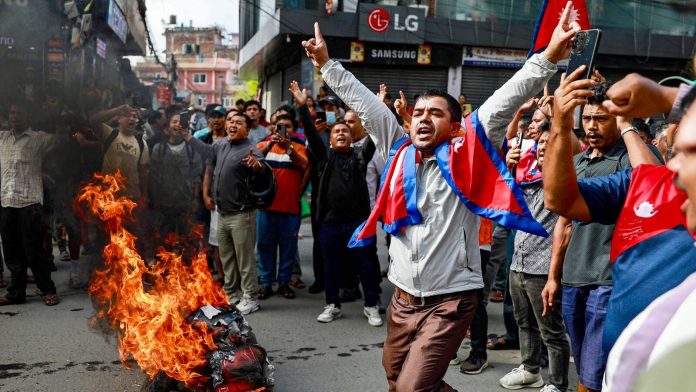Nepal was plunged into political turmoil on Tuesday as Prime Minister Khadga Prasad Sharma Oli resigned, a day after deadly protests against alleged government corruption left at least 19 people dead.
Defying a nationwide curfew, protesters stormed the parliament building in Kathmandu, setting it on fire, officials confirmed. Earlier, crowds had broken into the office of the country’s largest party, the Nepali Congress, and vandalised the residences of several prominent politicians.
Late Monday night, the government lifted a social media ban that had fuelled what organisers are calling a “Gen Z protest” sweeping through the capital and several other cities.
Authorities have closed Kathmandu International Airport with immediate effect as a security precaution, according to Nepal’s civil aviation authority.
President Ramchandra Paudel issued a statement calling for national unity and urging all parties to work towards a peaceful resolution. “I urge everyone, including the protesting citizens, to cooperate for a peaceful resolution of the country’s difficult situation,” Paudel said. “I appeal to all parties to exercise restraint, to not allow further damage to the country, and to come to talks.”
His appeal came just hours after protesters set fire to his office, the parliament building, and several politicians’ homes.
The Nepali Army also issued a rare public statement through its Directorate of Public Relations and Information, expressing deep sorrow over the loss of lives and widespread destruction. “Considering the current situation, it is our shared responsibility to prevent further escalation, preserve social harmony, and maintain national unity. The Nepali Army calls upon all youth and citizens to act with restraint,” the statement read.
The situation remains tense in Kathmandu and across Nepal as protesters continue to defy security forces, with fears of further unrest in the coming days.




